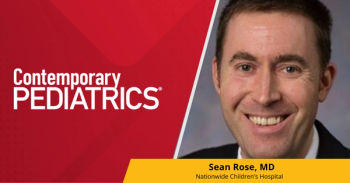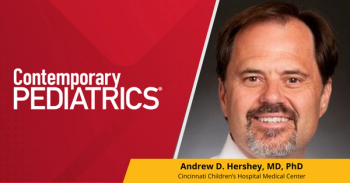
Early return to school linked to faster recovery, less symptom burden for concussed children
A study found that children with acute concussions could have less symptom burden with an earlier return to school.
Prolonged absences from school and other activities following a concussion could be detrimental to recovery and result in higher symptom burden for children of several ages, according to a study recently published in Jama Network Open.
The cohort study examined if the timing of return to school (RTS) following a concussion is associated with symptom burden at 14 days postinjury. Symptom burden was defined as symptoms status at 14 days, excluding preinjury symptoms, while an early RTS was defined as missing fewer than 3 days of school after the concussion.
The analysis used data from the Predicting Persistent Postconcussion Problems in Pediatrics (5P) study, a cohort study conducted between August 2013 and June 2015 across 9 pediatric Emergency Departments (ED). Over 1600 patients aged 5 to 17.99 (n = 624 [38%] female; mean [SD] age, 11.8 [3.4] years) made up the study population (SP) and presented at an ED with symptoms of an acute concussion (less than 48 hours).
Of the 1630 study participants, 875 (53.7%) had an early RTS, while 755 (46.3%) missed 3 or more days (late RTS). The mean (SD) numbers of days missed also increased across age groups (5 to 7 years, 2.61 [5.2]; 8 to 12 years, 3.26 [4.9]; and 13 to 18 years, 4.71 [6.1]).
Lower symptom burden 14 days postinjury was found in groups aged 8 to 12 years and 13 to 18 years, but not in the group aged 5 to 7 years. Further, the association between early RTS and lower symptom burden was stronger in participants with a higher symptom burden at the time of injury, excluding those aged 5 to 7 years.
Symptom burden at the 14-day postinjury mark was measured with the Post-Concussion Symptom Inventory (PCSI). A propensity score (PS) accounted for the likelihood of an outcome based on multiple predetermined factors.
The study participants had complete data, including symptom status at day 14. Of the 283 participants in the 5 to 7 years age group, no differences in PS analysis variables emerged between those included in the study and those excluded based on the timing of the injury and the known RTS date.
Excluded from the study in the group aged 8 to 12 were children: more likely to have received previous headache treatment, less likely to have early signs of confusion or forgetfulness, and less likely to have sustained the concussion from an impact in parietal or temporal regions of the head.
In the group aged 13 to 17.99 years, those excluded were: slightly older, more likely to have received prior headache treatment or to have a personal migraine history, and more likely to have an early symptom of sadness or nervousness.
A limitation in the study was that RTS timing was not randomly assigned prospectively, meaning causality could not be determined. Analytical methods were used to statistically balance the groups according to pre and postinjury characteristics that could have led to self-selection for an earlier or later RTS, based on injury severity alone, or other factors.
Overall, children aged 8 to 17.99 years that RTS within 2 days of suffering an acute concussion were associated with a lower symptom burden at 14 days postinjury compared to a later return. Conclusions from the study suggest a randomized clinical trial is required to determine the best timing for RTS.
Reference:
Vaughan CG, Ledoux AA, Sady MD, et al. Association between early return to school following acute concussion and symptom burden at 2 weeks postinjury. JAMA Netw Open. 2023;6(1):e2251839-e2251839. doi:10.1001/jamanetworkopen.2022.51839
Newsletter
Access practical, evidence-based guidance to support better care for our youngest patients. Join our email list for the latest clinical updates.






